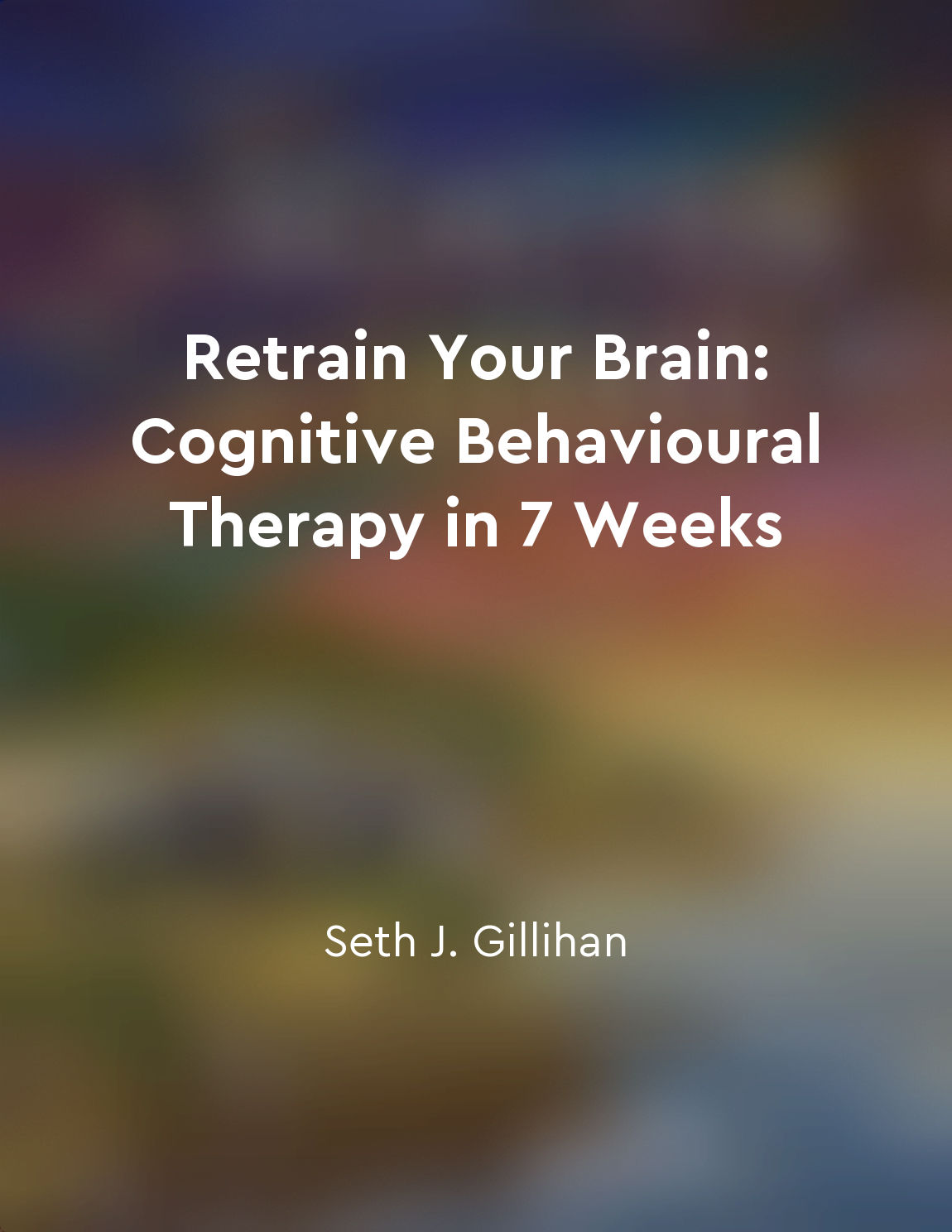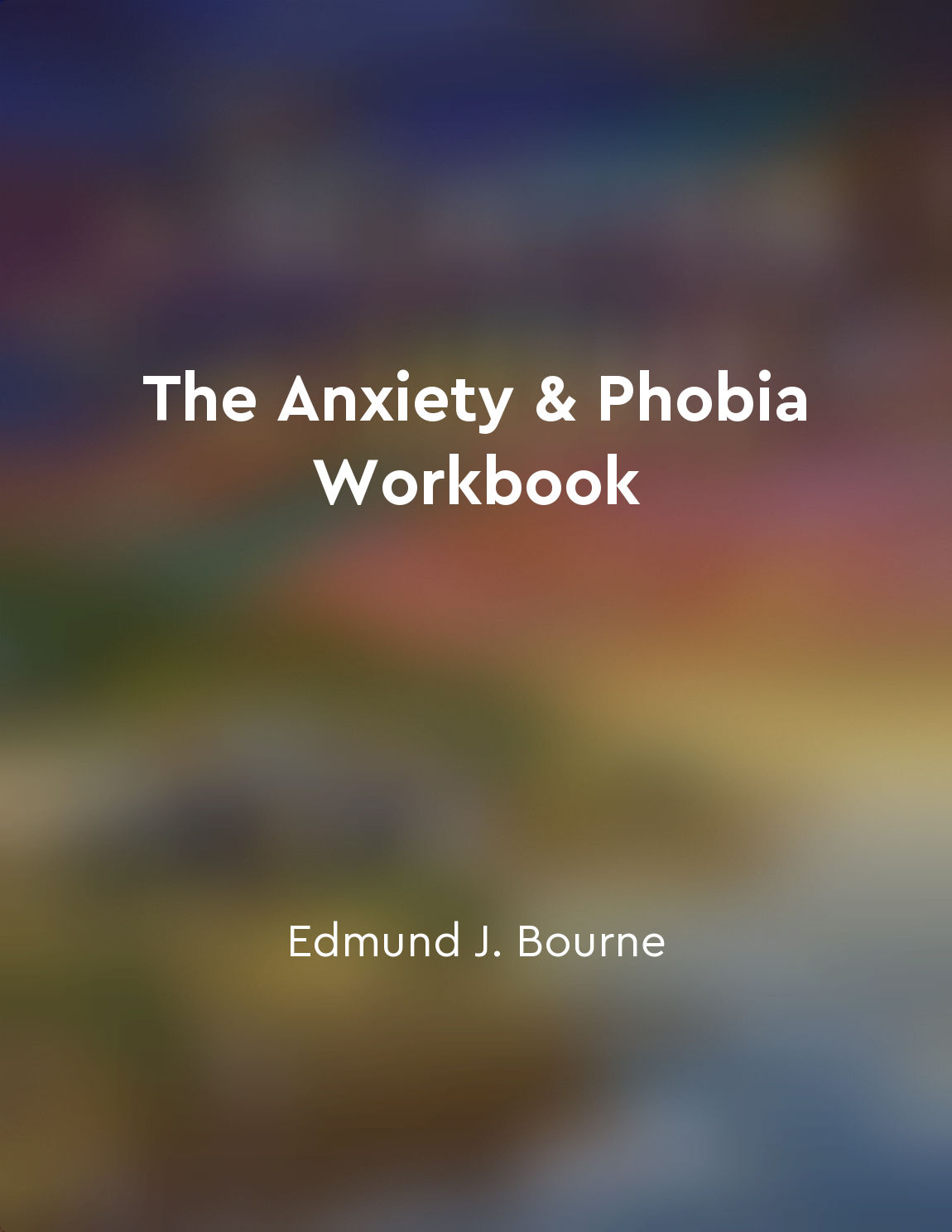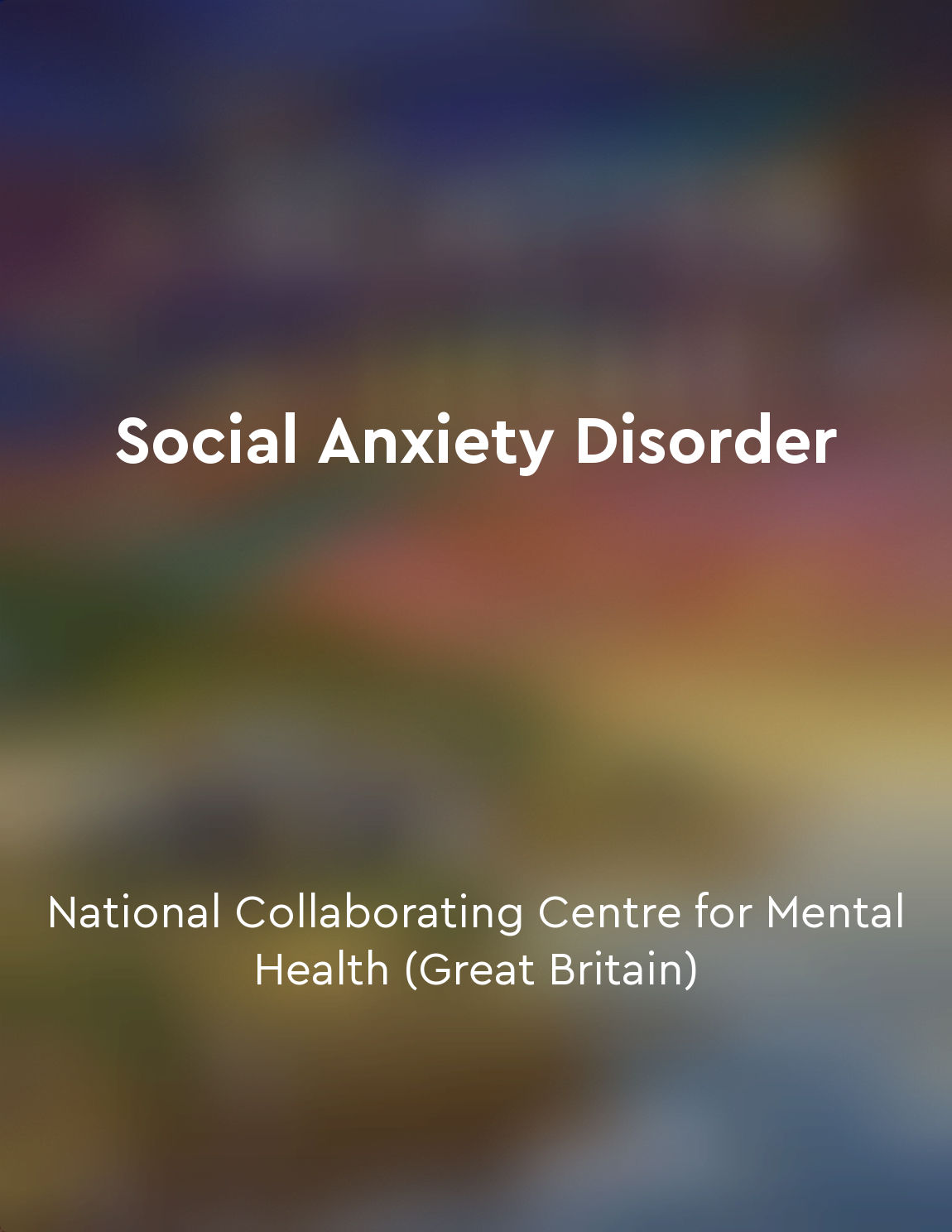Audio available in app
Collaborative empiricism involves working with the therapist to challenge beliefs from "summary" of Cognitive Therapy of Anxiety Disorders by David A. Clark,Aaron T. Beck
Collaborative empiricism is a fundamental component of cognitive therapy for anxiety disorders. This concept emphasizes the importance of working closely with the therapist to examine and evaluate beliefs that contribute to anxiety. The collaborative nature of this process involves a partnership between the therapist and the client, with both parties actively participating in challenging and modifying maladaptive beliefs. Through collaborative empiricism, the therapist guides the client in identifying and examining the accuracy of their beliefs. This collaborative approach fosters a sense of teamwork and mutual respect, creating a safe space for the client to explore their thoughts and emotions. By working together, the therapist and client can uncover underlying assumptions and cognitive distortions that may be driving anxiety. The goal of collaborative empiricism is to help the client develop a more balanced and realistic perspective on their thoughts and beliefs. By engaging in this process, the client can gain insight into the origins of their anxiety and begin to challenge and modify unhelpful beliefs. The therapist serves as a guide and facilitator in this process, offering support and guidance as the client works to change their thinking patterns. Collaborative empiricism also involves the use of evidence-based strategies to challenge beliefs. The therapist may encourage the client to gather evidence for and against their beliefs, helping them to see things from a different perspective. By examining the evidence together, the client can begin to see that their beliefs are not always based on facts or reality.- Collaborative empiricism is a collaborative and interactive process that empowers clients to challenge and change their beliefs. By working together with the therapist, clients can gain a deeper understanding of their anxiety and develop more adaptive ways of thinking. This collaborative approach is essential in cognitive therapy for anxiety disorders, as it helps clients make lasting changes and achieve long-term relief from anxiety.
Similar Posts
Transform your thinking to change your life
The key to changing your life lies in transforming your thinking. Your thoughts have a powerful impact on how you feel and act,...

Manage stress through relaxation techniques
One key strategy for combating stress is to incorporate relaxation techniques into your daily routine. Stress is a common trigg...
It is a testament to the fragility of human existence
The fragility of human existence is a profound testament to the inherent vulnerability that defines our nature. It is a reminde...

Increase intimacy with the Thought and Feeling Empathy Technique
To increase intimacy with your partner, try using the Thought and Feeling Empathy Technique. This involves listening to your pa...

Practicing mindfulness to increase selfawareness
Mindfulness is an essential practice for enhancing self-awareness. It involves paying attention to the present moment and becom...

Develop coping strategies for stress
When it comes to managing stress, it's important to have effective coping strategies in place to help you navigate difficult si...

Phobias are intense fears that can disrupt daily life
Phobias are intense fears that can disrupt daily life. They are more than just normal fears; they are irrational and exaggerate...
Learning to love ourselves unconditionally is a journey worth taking
Learning to love ourselves unconditionally is a journey worth taking because it is a transformative process that has the power ...

Medication can also be helpful in managing symptoms
For some individuals with social anxiety disorder, medication can play a helpful role in managing symptoms. There are various t...

